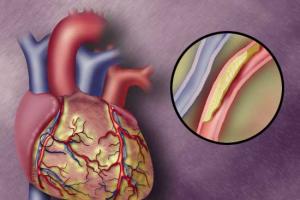During pregnancy, every woman is faced with new emotions and sensations. The body of the expectant mother undergoes many changes, trying to get used to a new, unusual state up to this point. One of these changes is sleepiness during pregnancy.
If you complain to a gynecologist about weakness and drowsiness and ask why you feel sleepy during pregnancy, the doctor will most likely tell the official version explaining why this problem occurs. Experts are sure that endocrine changes are to blame.
It's great if the expectant mother can afford to rest during pregnancy - it will be easier for her to put up with increased drowsiness and fatigue. It is more difficult for those women who have to go to work or school. The desire to boost the body with various stimulants, for example, in the form of caffeine, cannot be yielded, since this can affect the development of the unborn baby.
Causes in the early stages
Slight nausea, weakness and drowsiness - the onset of pregnancy. They appear even before the moment when menstruation is supposed to begin or show a positive result. Increased drowsiness is due to an increase in the content in the blood. This hormone begins to be synthesized in large quantities as a result of the onset of conception. It affects not only the reproductive functions of the female body, but also affects it systemically, including affecting the state of the nervous system.
This leads to the fact that the woman's nervous system begins to rest in a state of rest, often resembling apathy. That is, the constant desire to sleep and relax for the expectant mother, who is in the early stages of pregnancy, is quite normal. By the end of the third month, the symptoms of fatigue and drowsiness during pregnancy gradually disappear. A woman's mood improves, there is a feeling of a surge of strength and energy.
Reasons for late
The second peak of increased drowsiness appears closer to childbirth - at 36 weeks of gestation. This is due to the active preparation of the body for the approaching birth.
In the last month of pregnancy, the expectant mother feels more pronounced discomfort, complains about it, it is difficult for her to find a comfortable one. These difficulties add to the emotional experiences associated with imminent childbirth. All this affects the fact that a woman does not get enough sleep at night and complains of increased drowsiness during the day. After the baby is born, this problem will go away on its own.
Pathological sleepiness
Periodically appearing fatigue and drowsiness during pregnancy are quite natural for the body of the expectant mother. But if the symptoms of fatigue, apathy and lack of strength haunt a woman who is in position constantly for a long time, it is important to find the cause of this condition.
Pathological drowsiness that occurs in the early stages of pregnancy may be due to the fact that a woman illiterately organizes the regime of work and rest, allowing for lack of sleep and lack of proper rest, facing stress factors. Also, the appearance of pathological drowsiness may be due to health problems of the pregnant woman.
It can be:
- pronounced and late;
- iron deficiency;
- or blood pressure.
Also, the reasons for the development of this type of drowsiness can be banal and manifestations. In this case, consultation with the attending physician is necessary.
How to work with drowsiness?
Most expectant mothers work until. Many of them complain about the constant desire to sleep right at the workplace, especially if work activity is associated with sedentary monotonous work. If before conception energy drinks could help to cope with fatigue, and strong, then during pregnancy it is strictly forbidden to use them to raise the tone.

How to work in case of haunting drowsiness?
- It is necessary to ensure that the air temperature in the working room is 19-21 ° C. If it is warmer or, conversely, a little colder, most likely, the body will be more sleepy.
- It is necessary to ventilate the room at work more often, avoid stuffy and smoky places. Oxygen deficiency negatively affects the well-being of the expectant mother, causing a feeling of fatigue and drowsiness.
- Small walks in the fresh air during the day or in the evening not only invigorate, improve mood, but also help get rid of drowsiness without the use of tonics.
- If you have a strong desire to sleep, it is recommended to drink a glass of chilled water in one gulp.
- Avoid overwork. With a constant feeling of fatigue and haunting drowsiness, you can ask the management to enter into a position and partially facilitate work. A similar possibility is provided for by the legislation of our country when it comes to pregnancy.
If you constantly want to sleep at the workplace, the body is deprived of energy, serious fatigue has accumulated - this problem should be discussed with your doctor. Perhaps the cause of drowsiness in this case is not physiological, but pathological, that is, associated with a certain disease. This condition provides for the appointment of treatment that is not dangerous for the development of the baby.
If drowsiness is severe
If drowsiness in early pregnancy is understandable, then its prolonged course may be a sign of pathology. In cases where the problem does not go away for a long time, and the woman complains of sleep disorders, accompanied by constant awakenings, nightmares, periods of nocturnal wakefulness, the help of a specialist is needed.
Severe weakness and drowsiness during pregnancy, accompanied by pallor of the skin and a violation of general well-being, may be signs of hypotension and anemia. If these symptoms are accompanied by fainting, we are talking about the development of such a pathology as acute preeclampsia.
These conditions require treatment. For example, in case of anemia, a specialist prescribes iron preparations to a woman (Ferlatum, Ferrum Lek and others) and a diet enriched with iron-containing foods.
What to do?
Drowsiness during pregnancy caused by physiological factors cannot be a sign of a disease. Thus, the woman's body simply adapts to its new position, so this condition does not need to be treated. It is enough to reconsider your usual daily routine, highlighting an additional couple of hours in it for sleep and rest.

A woman during pregnancy should sleep at least 10 hours every day, ideally if 2 hours of them are spent on daytime sleep. It is recommended to go to bed in the evening no later than 22:00 in order to preserve natural biorhythms as much as possible and achieve a more complete rest.
If before pregnancy a woman used to start her morning with a cup of coffee and pastries, now you need to give up this habit. The future mother's breakfast should consist of yogurt, dried fruits, muesli or cereals - this will fill the body with a sufficient portion of energy and drive away fatigue.
Light, regular walks in the fresh air are very useful for the expectant mother, as they help keep the body in good shape. Sufficient physical activity can suppress stress factors, improve mood and overall well-being.
If increased drowsiness is a sign of a certain pathological process, for example, hypotension, treatment is carried out for the underlying disease that provokes the development of the problem. These situations require monitoring by a specialist who will help you choose the best treatment and prevent possible pregnancy problems.
Useful video about the features of sleep during pregnancy
I like!








